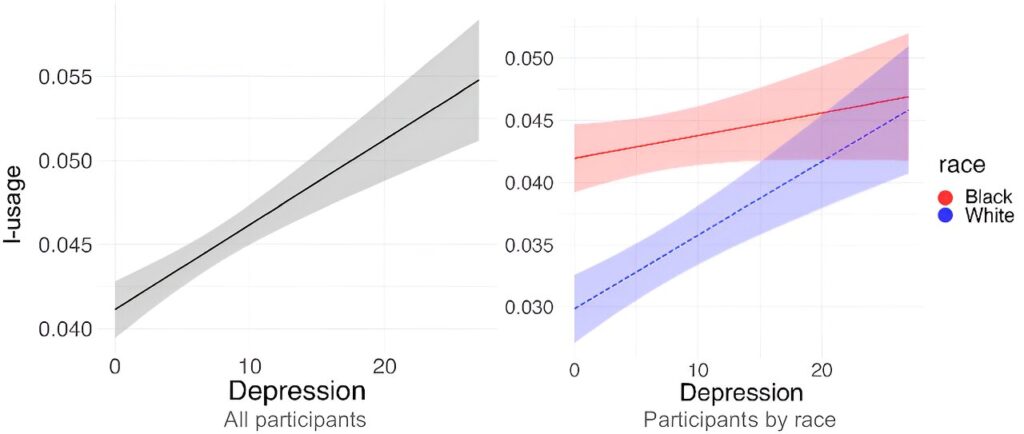
Left: I-usage as a function of depression severity (measured via PHQ-9). Img source: medicalxpress.com
May 25, 2024 Story by: Publisher
The language of depression among Black Americans differs significantly from that among White Americans, posing a challenge to the effectiveness of AI in mental health care, according to two new studies from LDI experts.
Senior Fellow Sharath Chandra Guntuku and the Computational Social Listening Lab at Penn discovered notable disparities in the expression of depression between individuals of different races. They analyzed language patterns associated with depression, such as the use of first-person pronouns and negative emotion language, and assessed the performance of machine learning language models in predicting depression among Black and White Americans.
While the study revealed a correlation between increased depression severity and greater use of first-person pronouns among White Americans, this relationship was not observed among Black Americans. Moreover, the language-based prediction models demonstrated poor performance when tested on data from Black individuals, regardless of whether the models were trained using language from White or Black individuals.
Guntuku’s team also investigated differences in the evaluation of AI mental health products between computer scientists and medical researchers. They found that computer scientists prioritize technical advancements in chatbots, whereas medical professionals emphasize rule-based chatbots and outcome metrics to assess participants’ health outcomes.
These studies underscore the importance of developing racially inclusive AI models for mental health care and promoting interdisciplinary collaboration between computer science and medicine. Guntuku and his collaborators stress the need for racially diverse datasets and recommend increased collaboration to address the disparate approaches between the two fields. Source: Penn LDI

















